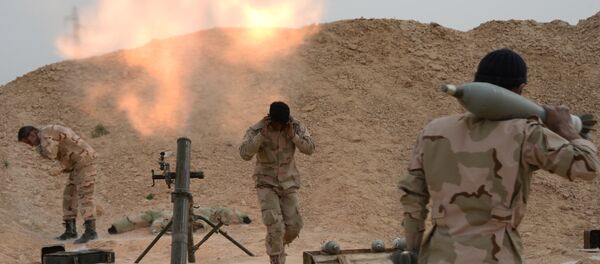The catfight between the CIA and the Pentagon over who Washington is actually at war with in Syria has now engulfed the US State Department itself: more than 50 American diplomats have recently accused President Obama of being too focused on fighting… Daesh.
"Described as the 'dissent channel cable,' the document appears to mirror the CIA's own narrative, which is that in attacking ISIS [Daesh] the US is fighting the wrong war in Syria, and instead demands that the US shift focus entirely to militarily imposing regime change on the Syrian government," Jason Ditz of Antiwar.com writes.
"The moral rationale for taking steps to end the deaths and suffering in Syria, after five years of brutal war, is evident and unquestionable. The status quo in Syria will continue to present increasingly dire, if not disastrous, humanitarian, diplomatic and terrorism-related challenges," the memo said as quoted by the New York Times.
Thus far, the State Department officials urge Obama to launch US air strikes against Bashar al-Assad and his Syrian Arab Army.
"To normal people living in the actual reality-based community, the idea that the US should attack the main opponent of ISIS (Assad) to bolster the fight against ISIS seems idiotic," Daniel McAdams of the Ron Paul Institute for Peace and Prosperity stresses in one of his latest articles.
"We all know how fantasy-based foreign policy works out. The examples are too numerous," McAdams emphasizes.
Interestingly enough, back in November 2015 former British chief of the defense staff General Sir David Richards called upon the British government to accept the fact that Bashar al-Assad's army is the only credible force that could fight Daesh and that by ousting Assad NATO forces would trigger chaos in Syria.
Moreover, former chairman of the US Joint Chiefs of Staff Gen. Martin Dempsey shared a similar stance.
Back in 2013 "a highly classified assessment, put together by the Defense Intelligence Agency (DIA) and the Joint Chiefs of Staff, then led by General Martin Dempsey, forecast that the fall of the Assad regime would lead to chaos and, potentially, to Syria's takeover by jihadi extremists, much as was then happening in Libya," Seymour Hersh wrote in his article for London Review of Books in January 2016.
Unlikely, Ditz asserts.
The strategy proposed by the diplomats is directly in contradiction Washington's strategy that has been approved by the UN Security Council: to defeat Daesh with the assistance of both the Syrian government and the secular/moderate "rebels."
Furthermore, it is unlikely that the US "Syrian adventure" would receive high praise from Netanyahu's government in Tel Aviv: Israel could be subjected to attacks from both Syrian armed groups and Hezbollah militias as a result of chaos in the region.
The potential military campaign could also escalate serious tensions between the United States and Russia as well as between Washington and Beijing. The risk of a direct conflict could not be completely excluded either.
"Secretary of State John Kerry was leading the charge for a war against Assad years ago, only to have it foiled by Syria agreeing to the demand to destroy all their chemical weapons. At this point, with Russia deeply involved in the war, attacking Assad is all but impossible, meaning the State Department 'protest' is mostly meaningless, and simply puts those officials on the record as not being happy with the losing war they're already fighting," Ditz concludes.






